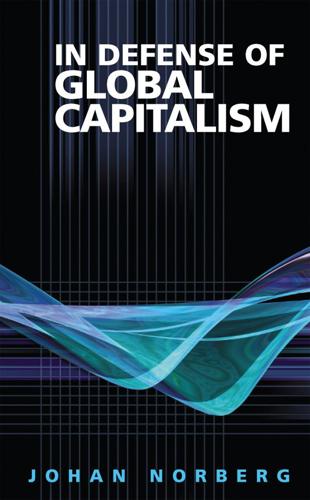
In Defense of Global Capitalism
by
Johan Norberg
Published 1 Jan 2001
They can choose to take things easier if they feel that they are working too much; they can pressure their employers for better conditions through such means as unions, and the employer can review the work situation. Each individual can opt out of certain things so as not to feel permanently at the beck and call of others. You don’t have to check your e-mail over the weekend, and there is no law against turning on the answering machine. Big is beautiful In the anti-globalists’ worldview, multinational corporations are leading the race to the bottom. By moving to developing countries and taking advantage of poor people and lax regulations, they are making money hand over fist and forcing other governments to adopt ever less restrictive policies. On this view, tariffs and barriers to foreign investment become a kind of national defense, a protection against a ruthless entrepreneurial power seeking to profiteer at people’s expense.
…
The International Labor Organization (ILO) has shown that the multinationals, especially in the footwear and garment industries, are leading the trend toward better workplace and working conditions. Because of the low standards of suppliers’ factories in the Third World, Nike has long been vilified by anti-globalists. But the truth is that Nike is one of the companies offering employees the best of conditions, not out of generosity, but with an eye to profit. These companies can pay more because their productivity is higher, and they are more responsive to popular opinion. Nike, consequently, has demanded a higher standard of its suppliers, and native firms have to follow suit.
…
If Nike were to withdraw, on account of boycotts and tariff walls from the Western world, the suppliers would have to shut down, and the employees would be put out of work or would move to more dangerous jobs with lower, less steady wages in native industry or agriculture. Many developing countries have what are called economic ‘‘free zones,’’ also known as export-processing zones, mainly for export industries. There, firms are allowed to start up with especially advantageous tax conditions and trade regulations. Anti-globalists characterize the free zones as havens for slave-driving and inhuman working conditions. There are indeed abuses and scandals in some quarters, and resolute action is needed to prohibit them. Mostly, abuse and scandal happen in poor dictatorships, and so, instead of freedom having ‘‘gone too far,’’ it has not gained a foothold.

Going Dark: The Secret Social Lives of Extremists
by
Julia Ebner
Published 20 Feb 2020
The extent of the abhorrent content I came across during this project was sobering, and the number of young people involved saddening. On the surface, the movements I joined have little in common. But I would come to learn that on the inside they all operate similarly: their leaders create protected social bubbles to encourage antisocial behaviour in the wider world. Their members globalise anti-globalist ideologies and use modern technologies to put into practice anti-modern visions. Going Dark exposes the hidden roots of life within extremist movements. Each part deals with a different stage in the radicalisation process. ‘Recruitment’ dives into the vetting procedures of an American neo-Nazi group, and the European white nationalist Generation Identity (GI) movement.
…
Indeed, their visions are rife with contradictions or what their favourite author, George Orwell, called ‘DoubleThink’: They prepare for race wars to preserve peace. They collect disinformation to find truth. They use women’s rights to promote misogyny. They exploit free speech to silence opponents. They build global communities to spread anti-globalist ideas. They invest in social bonds to encourage antisocial behavior. They use modern tech to achieve anti-modern goals. Ultimately, going back to a distant past where your race, sex and religion determine your rights and privileges, where some lives matter more than others, would mean reversing the biggest gift the generations of the twentieth century have bestowed upon the children of the twenty-first.
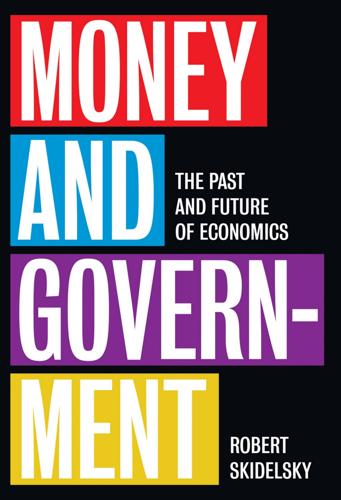
Money and Government: The Past and Future of Economics
by
Robert Skidelsky
Published 13 Nov 2018
It was a predominantly rich country protest against free 371 A N e w M ac roe c onom ic s trade, though often couched in terms of Western big business exploiting poor countries.32 The third event was the even more unexpected collapse of the developed world’s ‘mature’ financial system in 2008. This sharpened the sense that globalization was harmful to rich countries. Since the Great Recession of 2008–9, these anti-globalist stirrings have splintered and morphed into populist movements of both right and left. Globalization has, in reaction, created global populism.33 Our political language finds it hard to keep up. There is still a political divide between right and left, but it is increasingly overshadowed by one between nationalism and globalism.
…
The globalist typically wants culture to adapt to the imperatives of economic interdependence, and is surprised and disappointed when it hits back in discordant, often ugly ways. France’s President Emmanuel Macron has described populism as the politics of those ‘left behind’. This is right, as long as it is recognized that the feeling of being left behind is not just economic, but also cultural. At heart the globalist thinks of anti-globalist feeling as a social pathology, which needs to be explained, rather than as a reasonable response to what, for many, are distressing events. Globalists demand that people adapt to seemingly irreversible economic changes, without understanding that it is a mutual adaptation which is needed. Societies have very strong adaptive capacities, but they are not infinitely malleable, like bits of putty.
…
R., 179 Erie Canal, 90 Eshag, Eprime, 71 European Central Bank, 139, 188, 198, 217, 242–3, 253, 254, 361 institutional constraints on, 50, 234, 242, 249, 274–5 misreading of Eurozone crisis, 275 quantitative easing (QE) by, 273–4 on ‘stress testing’, 364 taxing of ‘excess’ reserves, 266 use of LTROs, 257 European Commission, 139, 3612, 365 European Exchange Rate Mechanism, 188 European Investment Bank, 354 European Union (EU, formerly EEC), 153, 318, 379, 383 Financial Stability Board (FSB), 363 ‘Four Freedoms’, 375 lack of state, 376 Single Resolution Board, 365 Eurozone current account imbalances, 333, 334, 335, 336–7, 341–2 Juncker investment programme, 274 proposed European Monetary Fund, 376, 382 structural flaw in, 341, 375–7 two original sins of, 274, 376–5 Eurozone debt crisis (2010–12), 50, 223, 377, 382 and double-dip recession, 241, 242–3, 274 ECB’s misreading of, 275 and financial crowding-out theory, 234 and Greece, 32, 224, 224–5, 226, 233, 235, 242–3, 243, 365 and ‘troika’, 32, 139, 243 469 i n de x exchange-rate policy, 127–8, 139 and Congdon’s ‘real balance effect’, 285 and domestic interest rates, 251 fixed rates under Bretton Woods, 16, 159, 161, 162, 168 floating rates from 1970s, 16–17, 184 and Friedman, 182 IMF ‘scarce currency’ clause, 380–81 Nixon’s dollar devaluation (1971), 153, 154, 165 and quantitative easing, 267, 267 sterling crisis (1951), 145 sterling devaluation (November 1967), 152 sterling-dollar peg (from 1949), 148, 150, 152 sterling/franc/deutschmark devaluations (1949), 152 ‘Triffin paradox’, 161, 165 ‘expansionary fiscal consolidation’, 192, 225, 231 Fabian socialism, 96 Fama, Eugene, 208, 311–12, 313 Fanny Mae, 217, 256, 309, 320 fascism, 13, 98, 131, 175 Federal Reserve, US and 2008 crash, 50, 217, 254, 256 AIG bail-out (2008), 325 Federal Open Market Committee (FOMC), 185–6 and Great Depression, 104–6 inflation targeting, 188 and monetarism, 185–6, 188 monetary policy in 1950s, 146 ‘Operation Twist’, 268 quantitative easing (QE) by, 256–7, 273–4 ‘Reserve Position Doctrine’ (1920s), 103–4 and under-consumption theory, 298 Ferguson, Niall, 73, 79, 80, 91 financial collapse (2007–8) acute phase, 218–20, 223 ‘Austrian’ explanation, 104, 303 banks as proximate cause, 343, 361, 365 Bear Stearns rescue, 217 British analogies with Greece, 235 British debate after, 225–8 causes of, 3–4, 343–4, 365, 366, 368 central bank responses, 3, 217, 219, 234–5, 253–4, 254, 256–8, 359 comparative recovery patterns, 241–4, 242, 273, 273–4 compared to 1929 crash, 218 Conservative narrative, 226–8, 229–31, 233, 234–5, 237–9 and crisis of conservative economics, 17 and embedded leverage, 318, 322, 325 five distinct stages of crisis, 216–19 ‘global imbalances’ explanation, 11, 331, 333, 336–43, 337 government responses, 3, 217–18, 219–20, 221–36, 237–47 Hayekian view of cause, 303 hysteresis after, 239–41, 240, 241, 370 inequality as deeper cause of, 299–306, 368 Lehman Brothers bankruptcy, 3, 50, 217, 365 leverage (debt to equity) ratios on eve of, 317–18 liquidity-solvency confusion, 317 outbreaks of populism following, 13, 371–3, 376, 383 post-crash deficit, 226–33, 229, 237–8 private debt as proximate cause, 3–4 470 i n de x stagnation of real earnings as deep cause, 4, 303, 367 standard account of origins of, 3–4 as test of two theories, 2–3, 76 theoretical and policy responses, 10, 129, 219–20, 223–36, 237–47 see also austerity policy and under-consumption theory, 303–6 US sub-prime mortgage market, 3, 216, 304–5, 309, 323, 328, 341 see also Great Recession (2008–9) Financial Services Authority, U K, 321–2, 330 financial system and causes of 2008 collapse, 3, 4–5, 253, 307–9, 361 and crisis of conservative economics, 17 deregulation, 307–9, 310–16, 318–22, 328, 332–3, 384 East Asian financial crisis (1997–8), 202, 339, 371, 382 ‘Efficient Market Hypothesis’ (EMH), 311–13, 321–2, 328, 388 ‘financialization’ of the economy, 5, 305, 307–9, 366–7 fraud and criminality, 3, 4, 5, 7, 328, 350, 365–6, 367 and free-market orthodoxy, 5, 308–16 loosening of moral restraints, 319 mark-to-market (M2M) framework, 314 offshore euro-dollar market, 308, 332 privatised gain and socialised loss, 319–20 released from national regulation (1980s/90s), 131, 318–22 structural power of finance, 6–7, 14, 309 systemic under-estimation of risk, 314–16, 316*, 320–22, 323, 329–30 Thatcher’s Big Bang (1980s), 319 tradable public debt instruments, 43, 80–81 Turner’s ‘financial intensity’ concept, 366 unrealism of assumptions, 310–16 value at risk (VaR) framework, 314–15, 315, 330 ‘Washington consensus’ deregulation, 198, 200 see also banks FinTech, 356 First World War, 86, 95, 106–7, 374, 375 ‘fiscal consolidation’, 10–11, 129, 225 Darling’s plan (2009), 225–6 ‘expansionary’, 192, 225, 231 and Osborne, 227–8, 229–30, 231, 233, 237–9, 243–4, 244, 245 fiscal policy and 2008 collapse, 10, 217–18, 219–20, 223–36, 265–6, 273–4, 286 ‘Barber boom’, 167, 168 during Blair-Brown years, 221–4, 223, 225–6, 227 British experience (1692–2012), 77 Congdon’s total rejection of, 280, 285–6 ‘crowding out’ argument, 83–4, 109–11, 226, 233–5 current and capital spending, 107–8, 114, 142, 155–6, 193, 221–3, 237–8, 355–7 directing flow of new spending, 286–7 fiscal multiplier, 110–11, 125–6, 133–6, 138, 230–31, 233, 235, 244–5 471 i n de x fiscal policy – (cont.) in inter-war Britain, 106–17 and Keynesian economics, 2–3, 109, 111, 114–17, 125–7, 129–31, 133–4, 137–8, 173, 278 Keynesian full employment phase (1945–60), 141–8 Krugman’s ‘confidence fairy’, 117 Lawson counterrevolution, 185, 192–3, 222, 358 legacy of monetarism, 190–93 May Committee (1931), 112 national income accounts, 138 New Classical view of, 200 in new macroeconomic constitution, 351–2, 355–7, 360–61 nineteenth-century theory of, 9, 29 post-Keynesian disablement of, 193, 221, 258, 304, 328 pre-crash orthodoxy, 221–2, 223–4, 230–31 Public Sector Borrowing Requirement (PSBR), 155–6 see also balanced budget theory; public investment; taxation Fisher, Irving, 9, 52, 61, 99, 280 ‘compensated dollar’ scheme, 66 equation of exchange, 62–4, 71–2, 258, 278–9, 283, 284, 287 QTM formulation, 62–7, 71–2 and quantitative easing, 258, 278–9 Santa Claus money, 62–4, 258, 278–9 Fitch (CR A), 329 France assignats in 1790s, 64–5 and gold standard, 50, 102, 104, 127 ‘indicative planning’ system, 150 ‘physiocrats’in, 81 protectionism in late nineteenthcentury, 59 state holding companies, 356 statism in, 140, 144 university campus revolts (1968), 164 Freddie Mac, 217, 256, 309, 320 free trade, xviii, 9, 58–9, 76, 79, 81–2 abandoned in Britain (1932), 113 general presumption in favour of, 377 and Hume’s ‘price-specie-flow’ mechanism, 37–8, 53, 54, 104, 332 and Irish potato famine, 15 List’s ‘infant industry’ argument, 88–9, 90, 378–7 and nationalist–globalist split, 371–3 and post-war liberalization, 16, 374 and presumption of peace, 379 repeal of Corn Laws (1846), 15, 85 Ricardo’s doctrine of comparative advantage, 88, 378, 379, 379 US conversion to (1940s), 90 Freiburg School, 140 Friedman, Milton adaptive expectations theory, 180–81, 183, 194, 206–11 and Cartesian distinction, 22 as Fisher’s heir, 278 The Great Contraction (with Schwartz; 1865), 105 idea of ‘helicopter money’, 63 and monetary base, 185, 280 and Mont Pelerin Society, 176–7 and ‘natural’ rate of unemployment, 163, 177, 181, 195, 206, 208 onslaught on Keynesianism, 170, 174, 177–83, 261 ‘permanent income hypothesis’ (1957), 178, 183 and Phillips Curve, 38, 180–81, 194, 206–8, 207 472 i n de x policy implications of work of, 182–3 political motives of, 177, 183–4 and quantity theory, 61, 70, 177–9, 182, 183, 194 ‘stable demand function for money’, 179 view of Great Depression, 104–6, 179, 183, 256, 276, 278 weaknesses in arguments of, 183 Frydman, Roman, 389 Fullarton, John, 49 Funding for Lending programme, 265–6 G20 Financial Stability Board, 363 summits (2009/10), 219–20, 223, 225 G7 finance ministers meeting (February 2010), 224–5 Galbraith, James, 303, 361 game theorists, 389 Gasperin, Simone, 357* Geddes, Sir Eric, 108 German Historical School, 88–9 Germany and 2008 crash, 217, 218, 243 current account surplus, 333, 334, 341, 342, 380, 381 employer–union bargains, 147, 167 and Eurozone crisis, 341, 365, 376, 377 and Great Depression, 97, 111, 129–30 growth Keynesianism (1960–70), 153–4 high growth rates in 1950/60s, 149, 156 Hitler’s reduction in unemployment, 111, 112, 129–30 hyperinflation of early 1920s, 275 as Keynesian in 1960s, 140 nineteenth-century expansion and unification, 89, 91 ‘ordo-liberalism’ in, 140 post-war modernization/catch-up, 156–7 protectionism in late nineteenthcentury, 59 return to gold standard (1924), 102 ‘Rhenish capitalism’ model, 154 Giffen, Robert, 51 Giles, Chris, 219, 302 Gini coefficient, 299, 300 Gladstone, William, 42–3, 86 Glass–Steagall Act (1933), 319, 361, 362 global imbalances basic theory of, 335–6 and capital account liberalization, 318–19 capital flight, 59, 334, 337, 341, 343 Eurozone see Eurozone: current account imbalances as explanation for 2007–8 crash, 11, 331, 333, 336–43, 337 and financial deregulation, 318–19, 332–3 and First World War, 95 increases in pre-crash years, 333, 333–4, 334, 335 problematic nature of, 333–4 reserve accumulation, 336, 337–41 ‘saving glut’ vs ‘money’ glut, 338–41, 342 structural causes still in place, 344 US dollar as main reserve currency, 338 global warming, 383 globalization, 17, 300, 334–5 absence of the state, 350, 373, 375–6 anti-globalist movements, 371–2, 373 first age of, 51, 55, 57, 59, 374, 375 473 i n de x globalization – (cont.) future of, 382–4 Geneva and Seattle protests (1998/99), 371 and inflation rate, 252–3 and lower wages in developed world, 252–3, 300, 379 nationalist-globalist split, 371–3 ‘neo-liberal’ agenda of IMF, 139, 181, 318–19 popular protest against, 351, 371–2 resurgence of after Cold War, 374 Rodrik’s ‘impossible trinity’, 375 gold, 23, 24, 25, 28, 35, 37 new gold production, 51, 52, 55, 62 gold standard, xviii, 1, 9, 27, 29, 338 and Britain, 9, 42, 43, 44, 45–50, 53, 57–9, 80, 101, 102, 113 collapse of US exchange standard (1971), 160, 165 commitment to convertibility, 55–6 and Cunliffe model, 54–5, 102 depressions in later nineteenthcentury, 51–2 dysfunctional after First World War, 95, 97 final suspension in Britain (1931), 113, 125 Fisher’s ‘compensated dollar’ scheme, 66 Hume’s ‘price-specie-flow’ mechanism, 37–8, 53, 54, 104, 285, 332 and international bond markets, 92 as international by 1880s, 50–52 Keynes on, 58, 101, 127 Kindleberger thesis, 58–9 move to ‘managed’ system, 71, 99–100 replaces silver standard (1690s), 42, 43 restored (1821), 48 return to in 1920s, 102, 104, 107 suspension during Napoleonic wars, 43, 45–7 suspension of convertibility (1919), 101–2 triumph of by mid-nineteenthcentury, 44, 50 working and design of, 52–9 as working in tandem with empire, 57, 58 Goldberg, Michael D., 389 Goldman Sachs, 315 Goodhart, Charles, 168, 187 Graeber, David, 28 Great Depression (1929–32), 9, 13, 96, 97–8, 110–13, 127 compared to 2008 crash, 218 Friedman-Schwartz view, 104–6, 179, 183, 256, 276, 278 impact on US policy-makers in 2008 period, 256, 275, 278 left-wing explanations of, 298 rise in inequality in lead-up to, 289 and second wave of collectivism, 15–16 Great Moderation (early 1990s–2007), 4, 53, 202, 278 economic problems during, 348 financial deregulation during, 318–22, 328 financial innovation during, 322–8 and independent central banks, 215 inflation during, 106, 215, 216, 252–3, 253, 348, 359, 360 international financial network, 309, 318–28 output growth during, 215, 253, 348 Great Recession (2008–9), xviii Congdon’s view of, 281–2, 287 co-ordinated global response, 219–20, 383 decline in productivity after, 305–6 474 i n de x initial signs of recovery (2009), 218–19, 225, 226 monetary interpretation of, 105, 106 ‘premature withdrawal’ of fiscal stimulus, 219–20, 223–36, 245, 352 reform agenda after, 361–8 rise in inequality in lead-up to, 289–90, 299–300 see also financial collapse (2007–8) Greece and Eurozone debt crisis, 32, 224, 224–5, 226, 233, 235, 242–3, 243, 337, 341, 365 in gold standard era, 59 Greenspan, Alan, 188, 313 Hamilton, Alexander, 88, 90, 92 Hammond, Philip, 236, 352 Hannover Re scandal, 329 Harrison, George, 105 Harrod, Roy, 123 Harvey, John, 333, 387 Hawtrey, Ralph, 109–10, 280 Hayek, Friedrich, 33, 46, 177, 195, 350, 367 founds Mont Pelerin Society, 176 ‘over-consumption’ theory, 296 The Road to Serfdom (1944), 16, 175–6 on Wall Street Crash, 104 Heath, Edward, 167–8 Heckscher, Eli, 37 Help to Buy programme, 265, 266 Henderson, Hubert, 109 Henderson, W.
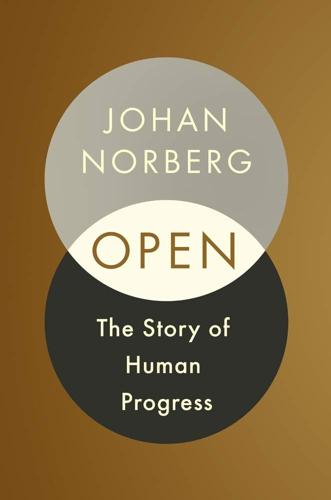
Open: The Story of Human Progress
by
Johan Norberg
Published 14 Sep 2020
The only thing that would turn this into a problem is a zero-sum mentality on either or both sides that shuts minds and borders to those insights and innovations. Myths of trade In no area is the zero-sum myth more prevalent than trade. When I published my book In Defence of Global Capitalism in 2001, it was an argument against the anti-globalists who thought free trade and multinational companies would make us in the West rich, but it would make poor countries poorer. I explained that this is not the case, that on an open market no deal is made unless both parties think that they benefit, and that poor countries would benefit tremendously from globalization.
…
And once he is there, ‘he begins to stir up one war after another in order to keep the public in need of a general’, as Plato prophesized in The Republic.26 The An Lushan Rebellion (755–63) was one of the bloodiest wars in history. It was started by an ambitious and disgruntled general and wreaked havoc on Tang China. The frontiers collapsed and China lost control of the Silk Road to the west. Anti-globalist Confucian scholars and bureaucrats argued that China had lost its way by opening up. The elite had become Buddhists, fallen in love with foreign products, wore Persian dresses and played polo – the game of nomads from the steppe. Now was the time to purge foreigners and return to ‘pure’, traditional values.

The Internet Is a Playground
by
David Thorne
Published 24 Mar 2010
I calculate the six real estate agents, pilot and co-pilot of your private plain, your rock and roll friends making $400,000 a day, plus the eleven servants and chauffeur makes a total of twenty-two. I am assuming the chauffeur is the person you intend to have me run over by, if not, then twenty-three. This total does not, of course, include the people you know from the Salvation Army, anti-globalist movements, sweatshop owners, the shop assistant at your local XXL Golf Pants’R’Us, or members of the K.D. Lang Fan Club. Regards, David From: Roz Knorr Date: Friday 16 October 2009 2:01 p.m. To: David Thorne Subject: Re: Re: Re: Re: Re: Re: Re: Re: Re: Re: Adelaide loser E-mail me agian and you will be sorry.

Hit Refresh: The Quest to Rediscover Microsoft's Soul and Imagine a Better Future for Everyone
by
Satya Nadella
,
Greg Shaw
and
Jill Tracie Nichols
Published 25 Sep 2017
As this book was going to press, Nobel economist Angus Deaton and his wife, Anne Case, also a distinguished economist at Princeton, published a paper that found whites in the U.S. who have less than a college degree, experience cumulative disadvantages over the course of their lives that can negatively impact their mortality, health, and economic well-being. In fact, their research found that it is education more than income that explains increases in mortality and morbidity among whites in midlife. This dynamic, coupled with Baldwin’s findings, have at least in part fueled today’s anti-globalist fervor, and as a result now invite introspection on both our public education and public health priorities. Of course, the goal is to grow the pie for everyone. GE’s Jeff Immelt provided his answer to the role of today’s multinational in a 2016 speech to the Stern School of Business at New York University.

The Secret War Between Downloading and Uploading: Tales of the Computer as Culture Machine
by
Peter Lunenfeld
Published 31 Mar 2011
When Carlo Petrini watched a McDonald’s open in Rome in 1986, he understood that for Roman youth, U.S. fast food was both a symbol of modernity and an emblem of 5 CHAPTER 1 solidarity with teenagers the world over. Rather than merely wringing his hands, however, Petrini decided to take action. Bringing together foodies with anti-globalists, cultural traditionalists, and those who wanted to buy from local producers rather than multinational conglomerates, Petrini started what has come to be known as the Slow Food movement. The central concept of Slow Food is that eating is part of an interlinked cultural system of production and consumption—gastronomy, in a word.
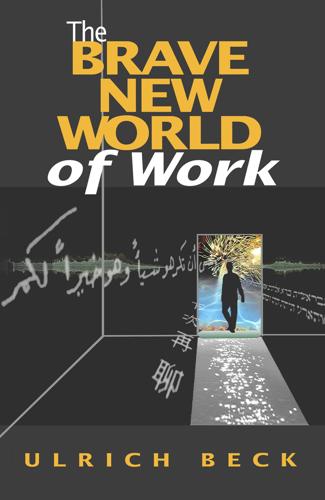
Brave New World of Work
by
Ulrich Beck
Published 15 Jan 2000
Rather, it implies that even the most mediocre or hopeless existence, even the most brutal and inhuman conditions, the worst experience or life of inequality, are today open to the play of an imagination produced by the mass media. A ‘global family’: hate movements against globalization ‘Anti-globalist’ movements are also based upon, or play along with, the paradox that they use the most recent achievements of modernity, its communicative reach and resonance, to work toward objectives militantly hostile to modernity. They exploit the new world order, as it were, in order to make their resistance to the new world order as effective as possible.
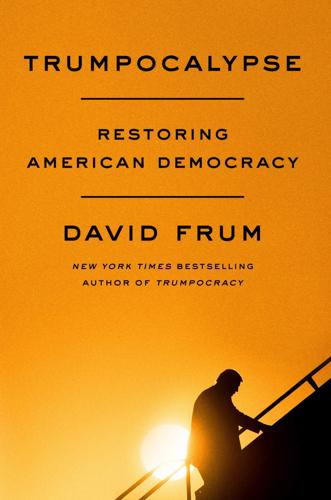
Trumpocalypse: Restoring American Democracy
by
David Frum
Published 25 May 2020
Both Putin and Castro, said Caldwell, became “a symbol of national self-determination” to an international rebellion against capitalist democracy.23 Its detractors called the movement “white nationalist,” but again, this is not quite right. The Trump movement is crammed with people of wholly or partially non-European origins, people who would not conventionally be regarded as white. The pro-Trump Human Events is edited by a British-born “anti-globalist” of Ismaili Muslim origins. Bombay-born Dinesh D’Souza produces books and documentaries reviling Barack Obama as an African outsider and hailing Trump’s glorious leadership. David Clarke, the African American former sheriff of Milwaukee County, served as a leading spokesman for Trump’s America First Action SuperPAC until 2019.

We Are Bellingcat: Global Crime, Online Sleuths, and the Bold Future of News
by
Eliot Higgins
Published 2 Mar 2021
Any logical observer saw how absurd it was to imagine this mess of competing groups all conspiring together.22 Professor Kate Starbird of the University of Washington, who studies how disinformation spreads on social media, conducted an insightful study on content about the White Helmets. In a previous study of conspiracy theories regarding mass shootings, she had noted how content on ‘alternative media’ sites did not align with the classic left/right divide. Instead, an anti-globalist bent made alt-right sites appear similar to alt-left ones.23 The ideological blur was evident again here. Starbird produced a dataset of tweets from late May to early September 2017 that mentioned the White Helmets, then she and her lab sorted through the embedded links, analysing which websites hosted the content.
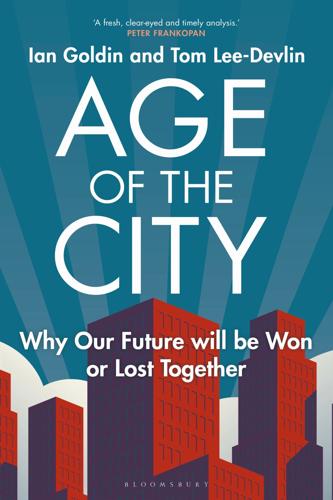
Age of the City: Why Our Future Will Be Won or Lost Together
by
Ian Goldin
and
Tom Lee-Devlin
Published 21 Jun 2023
A banker in New York might travel to London multiple times a year – at least before the pandemic – without ever having set foot in a city like Baltimore or spent more than a fleeting moment in a country town. The picture of a prosperous cosmopolitan elite with little interest in the plight of their fellow citizens has been a rallying motif for an anti-globalist populism across the United States, Britain, France and many other rich countries, fuelled by deep resentment. The fact that many educated elites in London knew no one who had voted for Brexit, or in New York who voted for Trump, was the ultimate testament to how disconnected they had become from their wider societies.

Covid-19: The Pandemic That Never Should Have Happened and How to Stop the Next One
by
Debora MacKenzie
Published 13 Jul 2020
But is the answer to make unemployment in Bangladesh permanent by bringing those clothing factories “home” or to shut down the amicable global trade links between great powers that have fostered the longest stretch of relative peace the world has ever known? If Covid-19 teaches us anything, it is that we really are all in this together. Some people in the anti-globalist, or just plain nationalist camp strongly believe we should not be organizing ourselves on a planetary scale at all. Yet, given that virtually all our economic and cultural activity is now on that scale, it is hard to argue we should not also be managing our affairs on that level. Just having eight billion people filling virtually every available niche on this planet makes us global whether we like it or not.
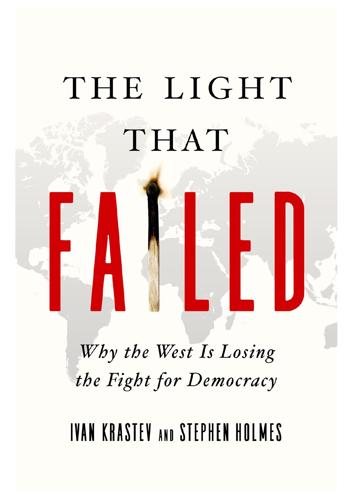
The Light That Failed: A Reckoning
by
Ivan Krastev
and
Stephen Holmes
Published 31 Oct 2019
As its name suggests, it was launched in response to Angela Merkel’s offhand claim that her monetary policy was ‘alternativlos ’ (‘without alternative’). By describing the government’s proposal as the only available option, she provoked an intense and implacable search for alternatives.5 A similar backlash, provoked by the assumed normality of post-nationalism, gave birth, in formerly communist countries, to an anti-liberal, anti-globalist, anti-migrant and anti-EU revolt, exploited and manipulated by populist demagogues who knew how to demonize ‘inner enemies’ to mobilize public support. STRAINS OF NORMALITY According to George Orwell, ‘All revolutions are failures but they are not all the same failure.’6 So, what kind of failure was the revolution of 1989, given that its aim was Western-style normality?
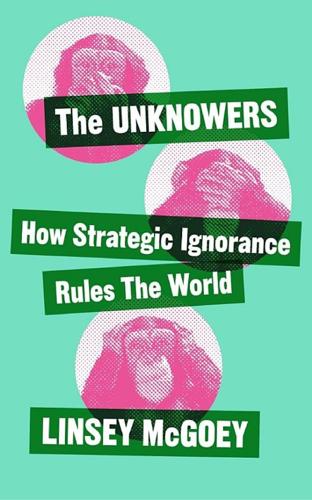
The Unknowers: How Strategic Ignorance Rules the World
by
Linsey McGoey
Published 14 Sep 2019
In doing so, he makes it seem as if the effort to make global institutions such as the World Bank and IMF more representative of the interests of developing nations and global workers who have been the main losers of financialized global capitalism is as odious as Bannon’s nationalist propaganda. Pinker closes down possibilities for improving the World Bank or the IMF’s structure by implying that any criticism of the status quo is the same as Bannon’s anti-globalist stance – but it’s not. Many of us who have long studied the World Bank and IMF don’t want these organizations shut down, but we do want them improved, and that means doing what academics should do: questioning their evidence base, including, for example, the World Bank’s decades-long position on labour deregulation in poor nations.
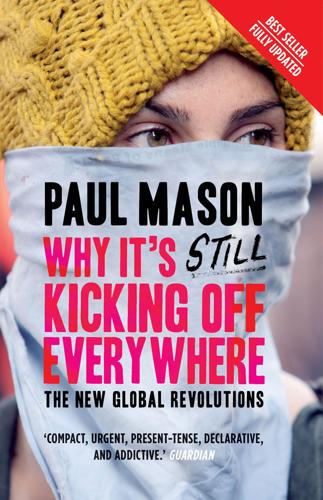
Why It's Still Kicking Off Everywhere: The New Global Revolutions
by
Paul Mason
Published 30 Sep 2013
She’s one of a tight group of women—mainly cleaning workers—who’ve organized the occupation. They all have children of working age who are unemployed. They resent the banks for evicting them and the politicians for bailing out the banks. Around the edges of the project move people from a completely different demographic: the so-called indignados of the 15M movement—anti-globalist youth with trade-mark tattoos and piercings. The indignados made world headlines after massive occupation protests in public squares in May 2011, in turn sparking the global Occupy movement. When you see the Utopia flats, draped with banners announcing ‘no homes without people, no people without homes’, you see what happens when official politics abandons people.

Border: A Journey to the Edge of Europe
by
Kapka Kassabova
Published 4 Sep 2017
A utopia that has gone wrong in exactly the ways in which it should have gone right deserves a minute of silence and a lot of reflection, and here it had gone even more wrong than elsewhere, which is why the locals had an insight into something usually experienced in war: collective heartbreak. There were no champagne socialists in the Village in the Valley, no anti-globalists, no anti-communists, no anti-capitalists. Just survivors. The women were old, the men were lonely, and the children were gone. Forgotten by justice, the survivors celebrated small successes, and life in the Village in the Valley was sweet and broken. ‘I’m in charge of a dying village, a death foretold,’ the mayor said.
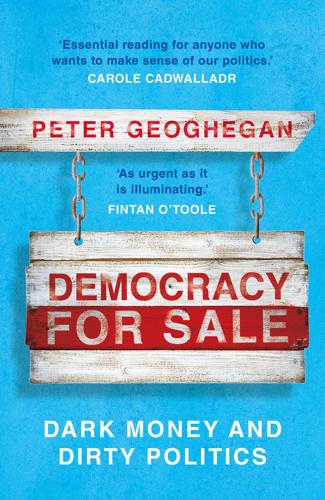
Democracy for Sale: Dark Money and Dirty Politics
by
Peter Geoghegan
Published 2 Jan 2020
The money is where the action is,” said Lane Scheppele. Brussels has done little to stem the tide of Hungary’s rampant corruption. Instead, Orbán has treated his frequent public dressing-downs in the European Parliament as a PR opportunity. He smiles for the cameras as Western politicians berate him. His florid responses – anti-liberal, anti-globalist, anti-EU – are clipped and circulated across social media. It is a message that chimed with voters across post-communist Europe, frustrated after decades of being told that there was no alternative to a market-led liberal democracy that often enriched the elite and left the majority disenfranchised and alienated.
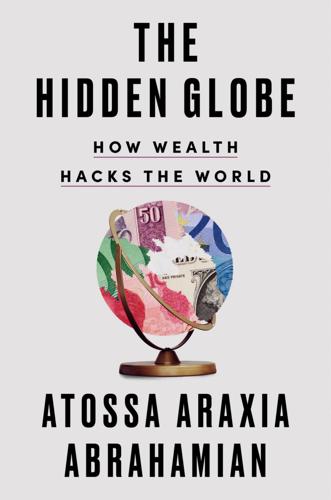
The Hidden Globe: How Wealth Hacks the World
by
Atossa Araxia Abrahamian
Published 7 Oct 2024
Having grown up in Geneva, with its many enclaves, I knew that you could be in two places at once: on Swiss soil, but under foreign jurisdiction; bound by some Swiss laws, but immune from others. On a much bigger scale, it seemed obvious that being part of a nation, territorially or otherwise, did not preclude participation in the global economy. That was precisely why Geneva was so full of international organizations. You had to be somewhere. I also noticed that the so-called anti-globalists in the news had an awfully, well, global way of doing things. Donald Trump ran hotels and golf courses all around the world, as well as having a thing for foreign women. His high-profile entourage, too, seemed always to have one foot out the door. Peter Thiel, the libertarian investor turned conservative donor, was revealed to have bought himself New Zealand citizenship at the precise time he was embracing Trump’s America First ideology.

Dark Towers: Deutsche Bank, Donald Trump, and an Epic Trail of Destruction
by
David Enrich
Published 18 Feb 2020
As Val sought vengeance and bank executives toiled to right their sinking ship, Bannon gossiped to American journalists that Deutsche was sinking and that it was taking Merkel, and the entire postwar European integration project, down with it. What made Bannon’s gleeful diatribes especially ridiculous was that the man he was trying to install in the Oval Office to enact his anti-globalist agenda was, at that moment, relying on Deutsche more than ever. First of all, there was the money. At the behest of Jack Brand and Christian Sewing and others, Deutsche in March 2016 had overruled Rosemary Vrablic and shot down Trump’s request to borrow money for his Scottish golf resort, Turnberry.
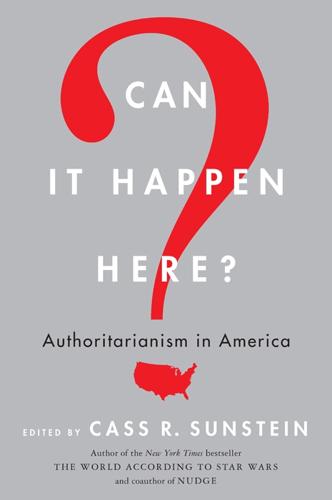
Can It Happen Here?: Authoritarianism in America
by
Cass R. Sunstein
Published 6 Mar 2018
A citizen of the world is a citizen from nowhere, as the prime minister has explained, identifying today’s most important political cleavage as the one between globalists and nativists, or between cosmopolitan classes who travel easily everywhere and whose “achieved” identities are based on education and local populations whose “ascribed” identities are rooted in the place where they are born, live, and die.35 In the wake of the violent overthrow by electorally accountable democratic governments in the West of the non-elected rulers of Iraq and Libya, migrant flows have surged dramatically, including into Europe, and anti-globalist our-boat-is-full parties with positive attitudes toward authoritarian leaders have become ubiquitous. It is nevertheless especially striking that the “open society” that Central and Eastern Europeans celebrated a quarter-century ago as a pathway to freedom is now widely decried by these same peoples as an invasion route for imaginary barbarian hordes.
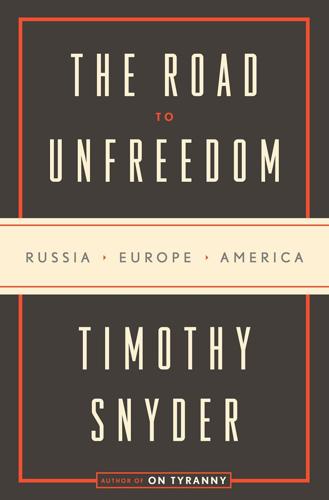
The Road to Unfreedom: Russia, Europe, America
by
Timothy Snyder
Published 2 Apr 2018
Manafort was replaced as campaign manager by the right-wing ideologue and filmmaker Steve Bannon, whose qualification was that he had brought white supremacists to the mainstream of American discourse. As the director of the Breitbart News Network, Bannon made them household names. America’s leading racists, to a man, admired Trump and Putin. Matthew Heimbach, a defender of Russia’s invasion of Ukraine, spoke of Putin as the “leader of the anti-globalist forces around the world,” and of Russia as “the most powerful ally” of white supremacy and as an “axis for nationalists.” Heimbach was such an enthusiast of Trump that he physically removed a protestor from a Trump rally in Louisville in March 2016—his legal defense at trial was that he was acting on instructions from Trump.
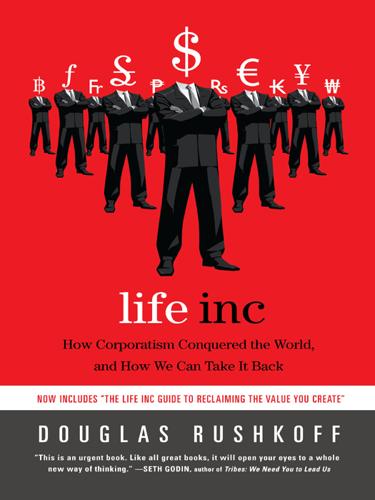
Life Inc.: How the World Became a Corporation and How to Take It Back
by
Douglas Rushkoff
Published 1 Jun 2009
He used trade surpluses to support the development of high-quality national industries, which in turn led to more trade surpluses. Tax-financed roads, rails, utilities, professional schools, and corporate subsidies still characterize French industry today, and account for the nation’s oft-noted resistance to global free markets. It’s not anti-Americanism or even an anti-globalist sentiment at its core, but a commitment to a more managed market that can maintain a trade surplus through the quality of goods rather than the quantity of resources. But it was no less corporatist in its design: instead of striking a deal with chartered colonial corporations, the French monarchy struck a deal with domestic mercantile capitalism.
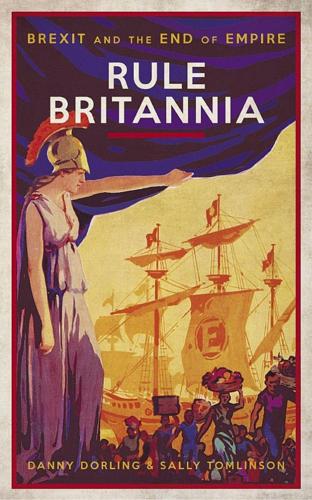
Rule Britannia: Brexit and the End of Empire
by
Danny Dorling
and
Sally Tomlinson
Published 15 Jan 2019
Parts of the Remain camp were by then employing the arguments of the pro-globalist right. These included suggestions by the likes of the Blairs and the Clintons that it is only free trade within the EU that keeps the British economy ticking over. Conversely, the Brexiteers appeared to have hijacked arguments put forward by the anti-globalist left, such as suggesting that the ‘elite’ are out to do down the people and there is a conspiracy of shadowy interests working to deny people a fair destiny. The people of Britain became increasingly confused and bemused, not least because they were constantly being told just how great their country was, which did not concur with the personal experiences of a growing number.

Doppelganger: A Trip Into the Mirror World
by
Naomi Klein
Published 11 Sep 2023
But while I was there, organizers asked me to give a short talk about the shock of the 2008 financial crisis and the raging injustices that followed—the trillions marshaled to save the banks whose reckless trades had caused the crisis, the punishing austerity offered to pretty much everyone else, the legalized corruption that all of this laid bare. These were the seeds of discontent that right-wing populists in dozens of countries would eventually exploit for a fiercely anti-immigrant and anti-“globalist” political project, including Donald Trump, under the tutelage of his chief advisor, Stephen K. Bannon. At the time, however, many of us still held out hope that the crash could catalyze a democratic revival and a new era of left power, one that would discipline corporate might and empower flailing democracies to address our many surging emergencies, including the climate emergency.
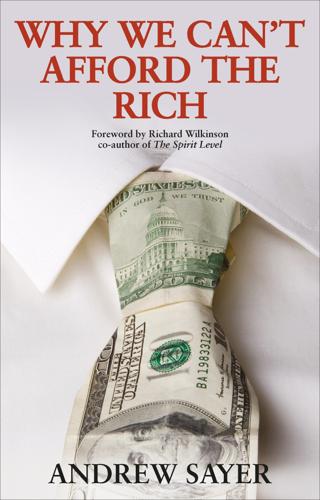
Why We Can't Afford the Rich
by
Andrew Sayer
Published 6 Nov 2014
Noam Chomsky contrasts the WEF with the alternative World Social Forum: The dominant propaganda systems have appropriated the term ‘globalization’ to refer to the specific version of international economic integration that they favor, which privileges the rights of investors and lenders, those of people being incidental. In accord with this usage, those who favor a different form of international integration, which privileges the rights of human beings, become ‘anti-globalist.’ This is simply vulgar propaganda . . . Take the World Social Forum, called ‘anti-globalization’ in the propaganda system – which happens to include the media, the educated classes, etc., with rare exceptions. The WSF is a paradigm example of globalization. It is a gathering of huge numbers of people from all over the world, from just about every corner of life one can think of, apart from the extremely narrow highly privileged elites who meet at the competing World Economic Forum, and are called ‘pro-globalization’ by the propaganda system.
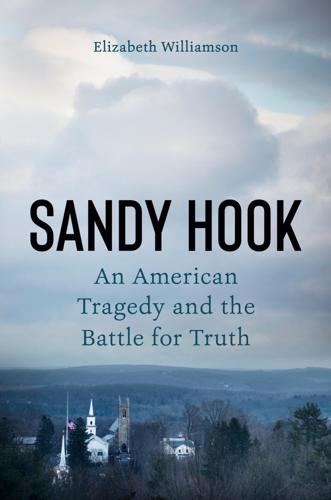
Sandy Hook: An American Tragedy and the Battle for Truth
by
Elizabeth Williamson
Published 8 Mar 2022
Their suggestion of secret insights, deep knowledge, and an amorphous enemy just outside the gates attracted a global crowd of disciples, all sidestepping the crucible of open, fact-based debate. This mind-meld of profs and proles is emblematic of the hybrid online linkages that hasten the spread of misinformation. Similar happened in 2020, when liberal yoga teachers and anti-globalist doomsday preppers unacquainted in the real world joined forces online to boost anti-vaxx nonsense during a pandemic. Influential online sites like Infowars amplified their messages to an angry, gullible audience of millions. Secretive government plans, which by design or by default harm Americans and others, punctuate our history and certainly warrant exposure and serious study.
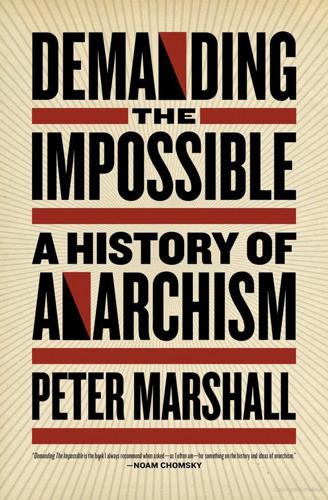
Demanding the Impossible: A History of Anarchism
by
Peter Marshall
Published 2 Jan 1992
Allen, 1968) Tzuzuki, Chushishi, Edward Carpenter, 1844–1829 (Cambridge: Cambridge University Press, 1980) Venturi, Franco, The Roots of Revolution: A History of the Populist Socialist Movements in Nineteenth-Century Russia (Weidenfeld & Nicolson, 1960) Vereker, Charles, Eighteenth-Century Optimism (Liverpool: Liverpool University Press, 1967) Veysey, Laurence, The Communal Experience: Anarchist and Mystical Counter-Cultures in America (New York: Harper & Row, 1973) Viénet, René, Enragés et Situationnistes dans le mouvement des occupations (Paris: Gallimard, 1968) Vizetelly, Ernest Alfred, The Anarchists: Their Faith and their Record, including sidelights on the royal and other personages who have been assassinated (John Lane, 1911) Wall, Derek, Babylon and Beyond: The Economics of the Anti-capitalist, Anti-globalist and Radical Green Movements (Pluto Press, 2005) Weinberg, Bill, Homage to Chiapas (Verso, 2002) Weir, David, Anarchy and Culture: The Aesthetic Politics of Modernism (Amherst: University of Massachusetts Press, 1957) Wexler, Alice, Emma Goldman: An Intimate Life (Virago, 1984) Wexler, Alice, Emma Goldman in Exile: From the Russian Revolution to the Spanish Civil War (Boston: Beacon Press, 1989) Williams, George Hunston, The Radical Reformation (Weidenfeld & Nicolson, 1962) Willis, Liz, Women in the Spanish Revolution (Solidarity Pamphlet, no. 48, 1975) Wilson, A.
…
They meet in dialogue in an effort to bring together the anarchist and Marxist traditions, to discuss the writing of history by those who make it, and to remind us of the idea that “my country is the world.” Encompassing a Left libertarian perspective and an emphatically activist standpoint, these conversations are meant to be read in the clubs and affinity groups of the new Movement. The authors accompany us on a journey through modern revolutions, direct actions, anti-globalist counter summits, Freedom Schools, Zapatista cooperatives, Haymarket and Petrograd, Hanoi and Belgrade, ‘intentional’ communities, wildcat strikes, early Protestant communities, Native American democratic practices, the Workers’ Solidarity Club of Youngstown, occupied factories, self-organized councils and Soviets, the lives of forgotten revolutionaries, Quaker meetings, antiwar movements, and prison rebellions.

For the Win
by
Cory Doctorow
Published 11 May 2010
She put the laser pointer in her pocket and reflected that it had the authentic feel of cool, disposable technology: the kind of thing on its way from a startup’s distant supplier to the schwag bags at high-end technology conferences to blister-packs of six hanging in the impulse aisle at Fry’s. She tried to imagine the technology conferences she’d been to with the addition of the subtitling and translation and couldn’t do it. Not conferences. Something else. A kids’ toy? A tool for Starbucks-smashing anti-globalists, planning strategy before a WTO riot? She patted her pocket. Freddy hissed and bubbled like a teakettle beside her, fuming. “What a cock,” he muttered. “Thinks he’s going to hire ten thousand teams to replace his workforce, doesn’t say a word about what that lot is meant to be doing now he’s shitcanned them all.
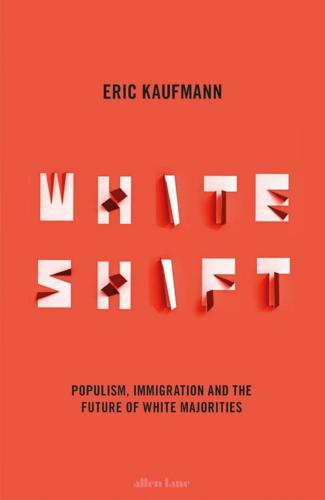
Whiteshift: Populism, Immigration and the Future of White Majorities
by
Eric Kaufmann
Published 24 Oct 2018
The volume and geographic concentration of Latinos, warned Huntington, was making them resistant to assimilation and could lead to the secession of the south-western United States.58 PAT BUCHANAN’S AMERICA FIRST At the foot of Lookout Mountain in north-west Georgia in 2005, a former Nixon and Reagan adviser and presidential hopeful, Pat Buchanan, delivered the eulogy at the funeral of the prominent paleoconservative Samuel Francis, his friend and muse. Buchanan, a Donald Trump avant la lettre, ran for the Republican nomination in 1992 and 1996 on an anti-globalist, ethno-traditionalist, religious-right platform. In 1996, he wrote of the challenge to the country’s ethno-traditions: Consider the change in our own country in four decades. In 1950, America was … 90 percent of European stock … By 2050, according to the Census Bureau, whites may be near a minority in an America of 81 million Hispanics, 62 million blacks and 41 million Asians.
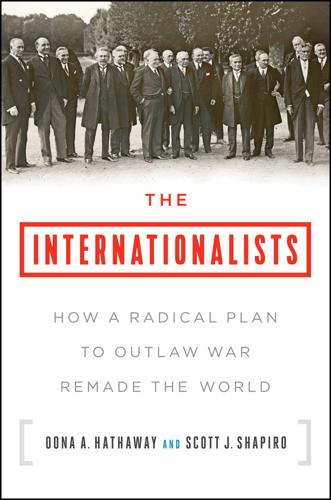
The Internationalists: How a Radical Plan to Outlaw War Remade the World
by
Oona A. Hathaway
and
Scott J. Shapiro
Published 11 Sep 2017
And he has used force against the Syrian government without Security Council authorization, in clear violation of the United Nations Charter. The United States is not the only state with rising anti-internationalist sentiment. The unexpected vote by disaffected citizens in the United Kingdom to pull their country out of the European Union and the rise of anti-EU anti-globalist far-right parties (some clandestinely financed by Russia) in France, Germany, Greece, Hungary, the Netherlands, Sweden, Austria, and Slovakia pose a deep challenge to the legal order that the Internationalists built. The postwar consensus in favor of positive-sum peaceful cooperation instead of zero-sum military competition is at greater risk than ever.